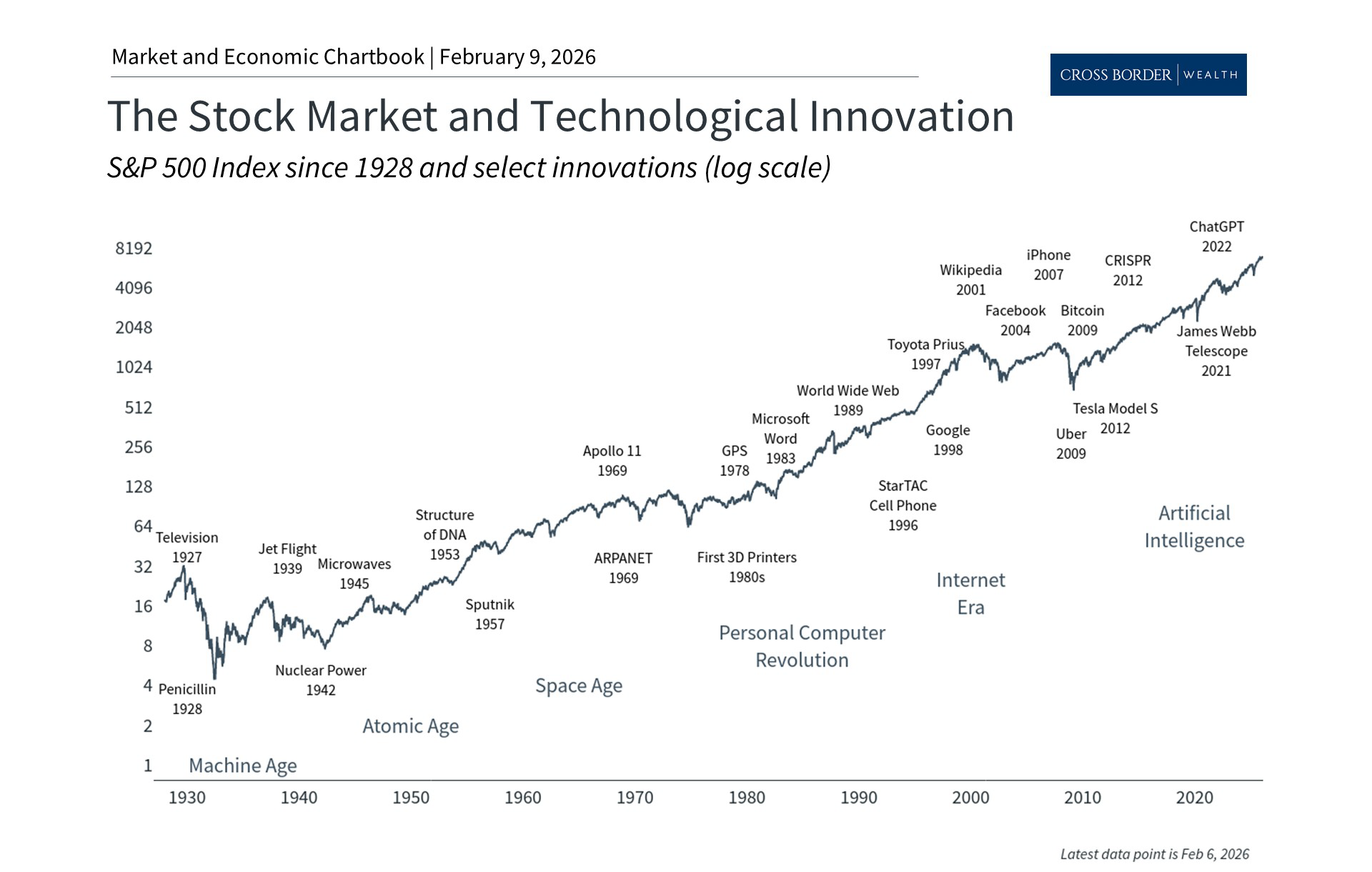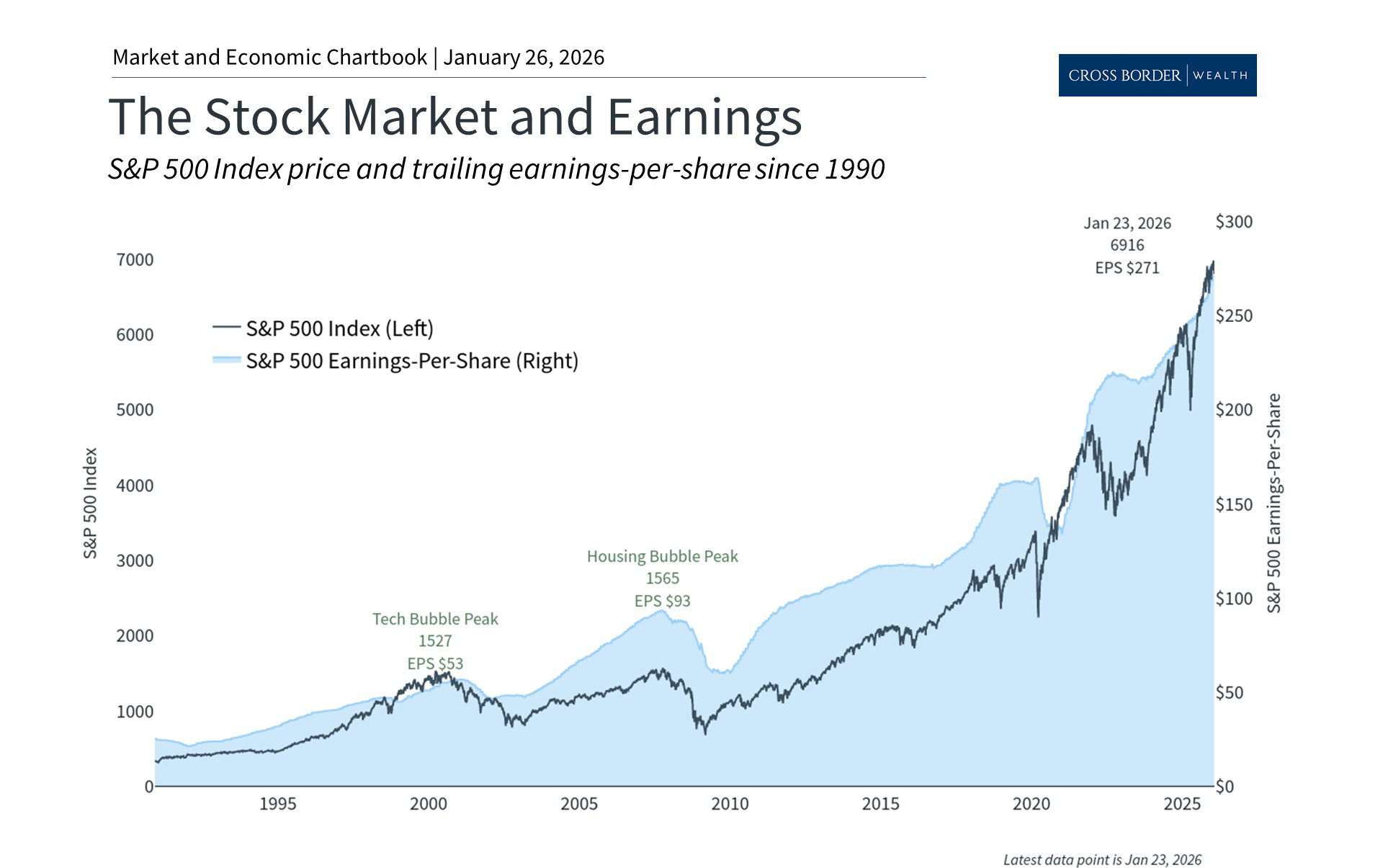How the Swift Stock Market Recovery Affects Investors
- Market Insights
- 4 mins
The U.S. stock market has almost fully recovered from its bear market decline. Since the bottom on March 23, the S&P 500 and NASDAQ have risen 43% while the Dow has jumped 46%. The S&P 500 is now only down about 1% year-to-date and is about 5% below its February high. Although it's important to not overly focus on any short-term period, recent market performance has much to say about the continuing recovery and long-term investing outcomes.
International markets have recovered as well but to a lesser degree. Although developed and emerging market stocks have each rebounded 32% since the bottom, they are still down 10% year-to-date. Overall, the MSCI All Country World Index has recovered 40% and has lost less than 5% year-to-date, thanks to U.S. stocks. While valuations are difficult to gauge at this stage, international markets continue to be much cheaper than those in the U.S., making them attractive.
Why have all major stock markets recovered so swiftly in the past two-and-a-half months? First, financial markets are forward-looking and anticipate important events. This doesn't mean that markets always get it right - far from it. However, it does mean that improvements in the public health situation are often incorporated into market prices immediately. So far, the market has behaved consistently with improvements in COVID-19 trends and the reopening of the economy. It helps that one of the "best case" scenarios - relative to what was feared at the height of the crisis - has been achieved.
Second, government stimulus measures no doubt helped to keep individuals and businesses on life support while in quarantine. The $2 trillion CARES Act, including Paycheck Protection Program loans for businesses and stimulus checks for individuals, helped to pay some bills, although more could always have been done. The Fed, by making emergency rate cuts to zero percent in March and by dramatically expanding its balance sheet, helped to keep the financial system functioning smoothly.
Of course, government stimulus cannot solve all of the economy's problems and there will no doubt be long-lasting consequences to this spending. The most important issue now is for the economy to stabilize in a safe way.
Thus, the third point is that there is optimism that the economic shutdown due to the novel coronavirus was a one-time event. Current Wall Street earnings estimates suggest that 2020 is a "lost year" for profit growth, with the gains that were expected this year to occur in 2021. There is also optimism that further outbreaks of COVID-19 can be handled with smaller-scale public health measures, including more limited geographically-focused shutdowns. Finally, there are signs of a possible vaccine or treatment, although this is highly uncertain at this stage.
Despite the recent rebound in markets, it's important for investors to maintain discipline since the country is not completely out of the woods yet. The novel coronavirus may be contained, but it is far from eliminated. Many major cities are now reopened but it may take time for business activity and hiring to resume. These wounds may take time to heal and there may be scars that affect how business operators and managers behave. For instance, decisions around office space, the size of workforces, willingness to raise debt capital, and the efforts to restore productivity in the long run are all significant uncertainties.
Long-term investing is about staying disciplined and diversified through thick and thin. Those that have been able to do so, with an eye toward achieving their financial goals, have been rewarded throughout historic market crises. Below are three charts that help to put recent market performance in perspective.
1. U.S. stocks have rebounded since March
Stock Market Returns in Perspective
Find this chart under "U.S. Stock Market"
The S&P 500 has risen about 43% since its low on March 23. While the index is still down 5.7% from its February peak, it's important to maintain perspective around these numbers. Since the beginning of 2018, the stock market has risen almost 20%. Since 2017, it has gained 43%. Volatility and short-term pullbacks in the market are challenging to manage, but investors who can stay the course are often rewarded if the economy can recover as well.
2. Stocks markets around the world have recovered too
Global Stock Returns and Pullbacks
Find this chart under "Global Stocks"
International markets have also recovered, although not to the same extent as U.S. stocks. However, all markets were hit equally hard at the onset of the crisis in an indiscriminate way. This suggests that each region's market recovery could take a different path, depending on the long-term economic and public health trends.
3. Asset allocation has played a vital role during this crisis
Asset Class Performance
Find this chart under "Asset Allocation"
Asset allocation has played an especially important role in investor outcomes throughout this crisis. Fixed income has helped to stabilize portfolios and is still the best performing asset class year-to-date thanks to falling interest rates and government stimulus. The recovery in global stocks since March has helped to boost portfolios further.
The bottom line? Stocks have nearly recovered which is positive news for investors. Still, long-term investors should maintain discipline and not become complacent, especially as uncertainty continues.
Cross Border Wealth is a SEC-registered investment adviser which may only transact business in those jurisdictions in which it is registered or qualifies for an exemption or exclusion from registration requirements.
Cross Border Wealth may discuss and display charts, graphs, formulas, stock, and sector picks which are not intended to be used by themselves to determine which securities to buy or sell, or when to buy or sell them. This specific information is limited and should not be used on their own to make investment decisions.
All information provided in this article is for educational purposes only and does not intend to make an offer or solicitation for the sale or purchase of any specific securities, investment, or investment strategies. Please ensure to first consult with a qualified financial adviser and or tax professional. Further, please note that while said information has been obtained from known sources which are believed to be reliable, none of these are guaranteed.

